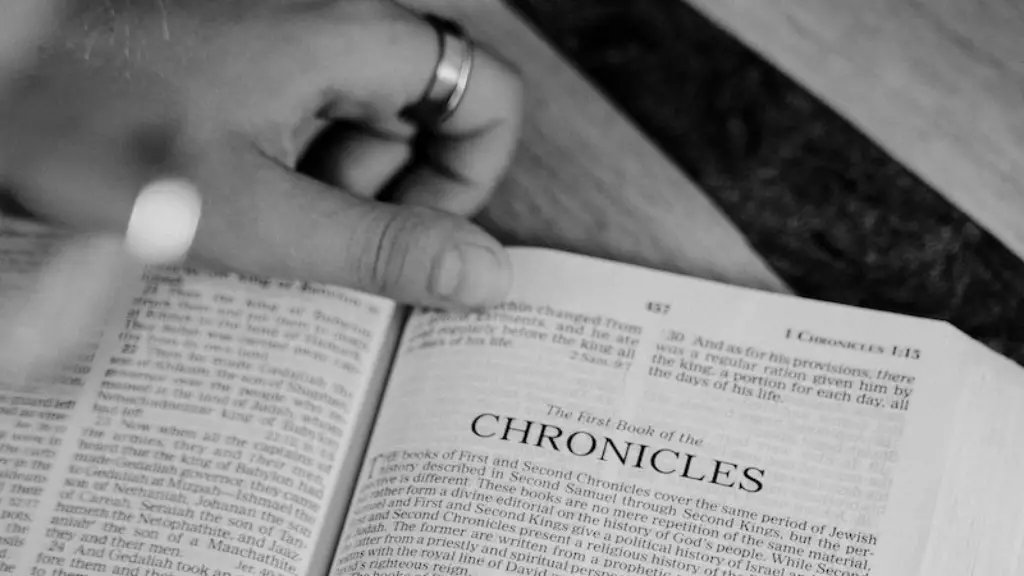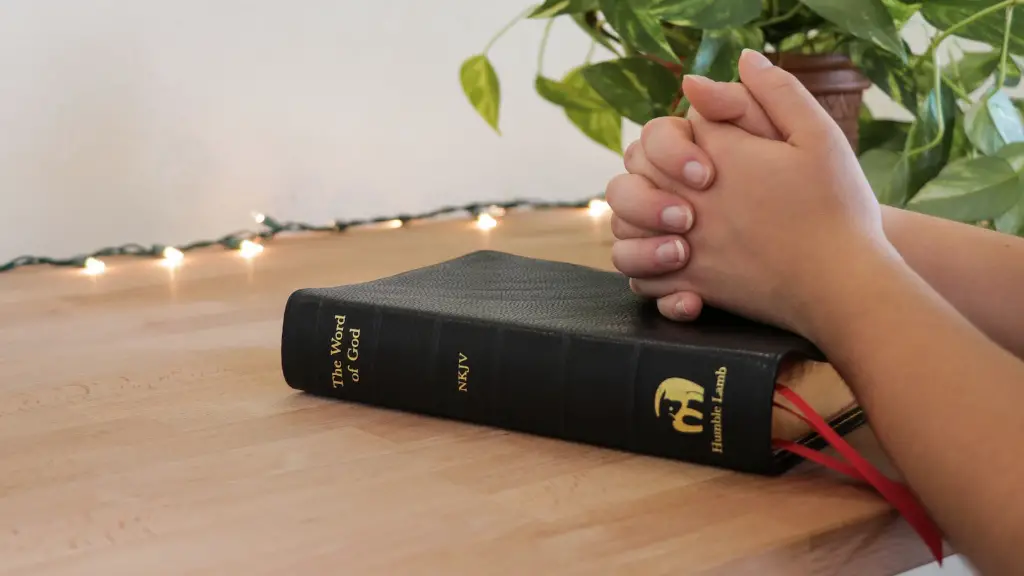Introduction to Witchcraft
Witchcraft has been around for centuries and is a form of spiritual practice that dates back to ancient times. It involves the use of natural elements, energy, and magic to bring about positive changes in one’s life. In some cases, witchcraft can be used to bring harm to another. People with a knowledge of the occult and herbalism often practice witchcraft. Common witches and sorcerers often cast spells on the unsuspecting in order to attain their goals. They often use protection spells, binding spells and healing spells. Although some people view witchcraft as black magic and look at it with fear, others have a more neutral or positive view of it.
The Bible’s Perspective on Witchcraft
The Bible provides some of the most extensive teachings on the subject of witchcraft. According to the Bible, witchcraft is considered to be an abomination by God. In the book of Deuteronomy, God speaks about witchcraft and condemns it as an abomination. The book also states that witchcraft is a detestable practice and will bring about the wrath of God. In Exodus, God commands Moses to put all practitioners of witchcraft to death. Other passages in the Bible also condemn witchcraft, including Leviticus and Proverbs.
The Moral Implications of Witchcraft
It is important to consider the potential moral implications of practicing witchcraft. Although some might consider it to be a source of healing and knowledge, the Bible indicates that it is sinful and an affront to God. The practice of witchcraft is also often associated with superstitious beliefs and practices such as spiritism, fortune-telling, and divination. All of these practices are forbidden by the Bible.
Types of Witchcraft
There are many different types of witchcraft. The most popular forms of witchcraft include Wicca and Paganism. Wicca is a nature-based religion that focuses on the worship of deities and the use of spells and rituals to achieve its objectives. Paganism is a polytheistic religion that is based on the worship of multiple gods and goddesses. Witchcraft can also be used for good or bad, depending on the individual’s intentions.
The Impact of Witchcraft on Society
The prevalence of witchcraft in today’s society has been a source of concern for many. It has the potential to disrupt social order, as those with a knowledge of the occult can use their powers to manipulate people and situations. As a result, the practice of witchcraft is often viewed as a form of spiritual manipulation and is subject to many superstitions and laws.
Modern Witchcraft
In recent years, modern witchcraft has become increasingly popular. The Internet has created an environment in which witches from around the world can easily connect and exchange knowledge, spells, and information. This has allowed many people to get access to information and spells from a variety of traditions and cultures. As a result, we now have a much more diverse and open-minded view of witchcraft than in the past.
Criticisms of Witchcraft
Despite the fact that witchcraft has seen a resurgence in popularity, there are still some people who view it with suspicion. Critics of witchcraft often point to its ties to black magic, as well as its potential to be used as a form of manipulation. They also point to the fact that it is not a religion and is not recognized by any established church.
Religious Perspective of Witchcraft
The religious perspective of witchcraft is quite varied. Most mainstream religions, including Christianity, are generally against the practice of witchcraft. However, some branches of Christianity, such as Quakers, allow those with a knowledge of the occult to practice their craft. Other religions, such as Hinduism and Buddhism, generally accept the practice of witchcraft as a legitimate form of spiritual practice.
Satanism and Witchcraft
Satanism is a form of witchcraft that has been a source of controversy in mainstream society. The practices of satanism are often seen as dark and evil and are usually associated with devil worship and black magic. While some people who practice satanism do so out of self-interest, others do so out of a genuine belief that the powers of darkness can be used for good.
The Legal Perspective of Witchcraft
In the United States, witchcraft is generally considered to be a lawful religion and is protected by the First Amendment. However, there are still some states that have laws on the books that make the practice of witchcraft illegal. For example, in Michigan, it is illegal to participate in any form of witchcraft or sorcery.
Conclusion
As we can see, the Bible has a strong stance against the practice of witchcraft and considers it to be an abomination. However, the moral and legal implications of practicing witchcraft vary depending on the religion, culture, and geographical area. Despite the challenges, it is important to remember that witchcraft can be used for both good and ill. For example, it can be used for healing, protection, and other spiritual practices.


